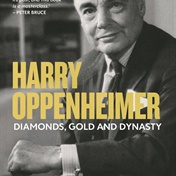
In this book, Ndumi Hadebe provides a practical guide with a road map on how to manage your money relationships with your family, how to identify your boundaries and how to communicate them in a way that is nurturing to yourself and those you are supporting.
Hadebe achieves this through conversations about real-life situations, along with reflections and insights. Whether you just cannot say no to your parents or your responsibilities as the eldest in the family are breaking you financially, this book can provide some insights and guidance on how to navigate this challenging space.
READ: Black tax: a responsibility, not a burden
An extract from Handle Black Tax Like a Pro – Story 4 follows:
FOUR DECADES OF BLACK TAX
Context: This extract relates to a conversation between Khetha (in his late fifties) and Derric (mid to late thirties), who had come to Khetha for advice regarding a black tax situation that was driving a wedge between him and his wife. Khetha shared how much he has spent on his black tax throughout the course of his working life, commenting: “You will be surprised how much you’ve already spent, and you are only in your thirties.”
THE BHUT’OMDALA LOAD
Traditionally, in an African cultural context, in the absence of parents – particularly at the time when the father passes on – the eldest son becomes the head of the family. He assumes a leadership role and manages the affairs and interests of the family. Someone who respects and values the meaning of leadership, like Khetha, steps into this role with much seriousness and a strong sense of responsibility.
When he passed away, Khetha’s father had no income, as he was old and unfit to work. Even if he’d wanted to, he would not have been able to afford even a quarter of what Khetha provided for his siblings.
Knowing this, these questions come up:
Is it not time to question the normalisation of this unreasonable expectation and call it out for what it is?
How is it that our mothers are okay with this level of unfairness?
When did the leadership role become reduced to “he or she owes us financially – for the rest of his or her life”?
His spending all that money on his siblings was not an example of good leadership. It was destructive to him and his recipients, who subsequently never learnt to be self-sufficient. It drained him financially and emotionally.
Even though he eventually managed to assert a boundary, he is still suffering from unresolved anger and resentment, which may lead to mental ill-health.
THE BLACK TAX PAYERIS PART OF THE PROBLEM
Khetha had one child who lived with him and his wife, yet he was fully committed to the belief that it was his duty to take care of his nieces and nephews too. What about the mothers and fathers of these children; did they believe it was fair that he footed the bill for their children’s livelihoods?
Imagine what would have happened if Khetha, too, decided to leave his child with his elderly parents and be MIA [missing in action] when the time came to send money for groceries. Imagine if he had pulled that stunt for two or three months in a row. Surely his siblings would have found a way to step in and assume responsibility for their own offspring and mother?
READ: Black tax, debt and inadequate pensions - South Africans have little to nothing left to save
To a certain degree, Khetha has to take responsibility for his part in the problem he is facing. He hoped and prayed the beneficiaries would see the light and suddenly stop needing him. Of course, they didn’t. Here are specifics of how he contributed to his situation:
By continuously funding his parents’ household to the extent to which he did, even after his parents had passed [away], he implied that he agreed with his siblings that he should be the one taking on that responsibility.
Over the years, he didn’t voice his honest views and feelings about the situation. Silence is compliance.
His ability to provide stood in the way of his siblings’ ability to feel positive pressure, the kind that propels an individual to find solutions, to figure out how to earn a living to provide for themselves and their kids.
To pull others up as we rise is necessary and noble, but doing it in a way that conditions them to not do it for themselves is counterintuitive and downright destructive to the family. It causes misery all round – the payer of this black tax eventually becomes unhappy and resentful, and, by the time he or she puts a stop to it, the people who’ve become accustomed to just receiving have missed out on years of learning how to earn, save and manage financially.




 Publications
Publications
 Partners
Partners









